Introduction
Can Pigeons Eat Peanuts: The world of avian dietary habits is a realm of surprising diversity and occasional peculiarity, and within this realm, pigeons emerge as an intriguing case study. While pigeons are often considered unassuming denizens of our urban landscapes and parks, they possess a rather unexpected and interesting culinary penchant – a fondness for peanuts. This seemingly ordinary bird, scientifically known as Columba domestica, harbors a not-so-ordinary appetite for this particular legume. In the dietary habits of pigeons, shedding light on the motivations behind their preference for peanuts and examining the potential implications of this dietary choice.
Pigeons, also colloquially referred to as “rock doves” due to their ancestry, are members of the Columbidae family and share close genetic ties with the peaceful symbol of peace and love, the dove. They have long been a familiar sight in both rural and urban environments, their gentle cooing and distinctive waddling gait endearing them to many. However, what often goes unnoticed is their intriguing dietary behavior. Peanuts, those humble legumes often associated with snacking and backyard bird feeders, hold a special allure for pigeons.
It’s not uncommon to witness these birds eagerly pecking at discarded peanut shells or rummaging through feeders in search of these morsels. In this exploration, we will unravel the mysteries surrounding brown pigeons affinity for peanuts, examining the science behind their dietary choices, the potential benefits and drawbacks of this preference, and the broader implications it has for our understanding of avian behavior. Join us on this journey into the fascinating world of pigeons and their curious culinary inclinations.
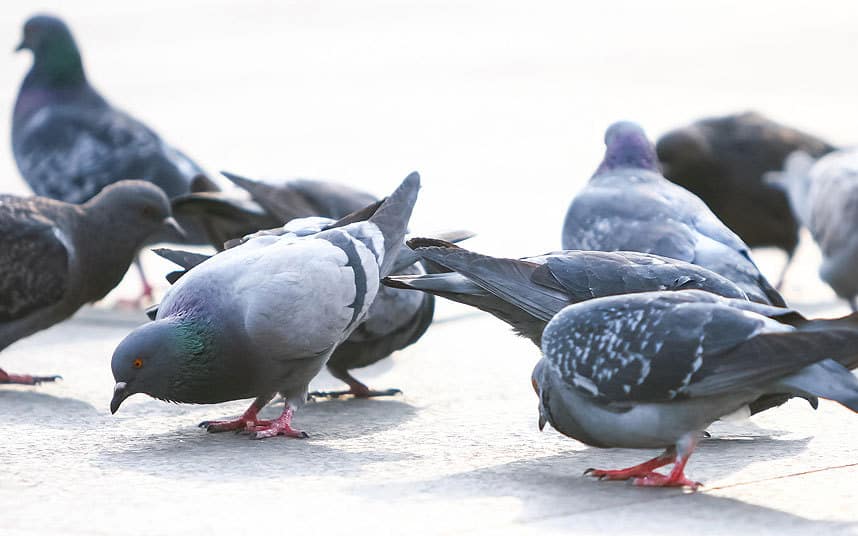
Is it okay to feed pigeons peanuts?
As a source of fat protein peanuts are also ideal feed for the young, nest raised pigeons. The make-up of a peanut is similar to that of crop milk, which consists of fat and protein only. But peanuts are expensive, so we should only feed them when they are most needed.
Overpopulation: Feeding pigeons, especially in excess, can lead to overpopulation. An abundant food supply can result in pigeons breeding more frequently and in larger numbers, which can disrupt local ecosystems.
Health Concerns: Large congregations of pigeons, drawn by feeding, can lead to unsanitary conditions. Accumulated bird droppings can pose health risks, as they can harbor diseases like salmonella.
Attracting Pests: Spilled peanuts can attract rodents and other pests, creating problems for the area. Employ bird feeders designed for pigeons or other birds. This helps minimize waste and keeps the feeding area cleaner.
Disruption of Natural Behavior: Pigeons may become dependent on human handouts, disrupting their natural foraging behaviors. This dependence can make them less resilient and adaptable to changing environmental conditions.
Are peanuts safe for birds?
Peanuts out of Shell are a high-energy food enjoyed by a wide variety of birds including woodpeckers, titmice, nuthatches, chickadees, jays and more. They’re 100% edible and are high in both protein and fat. Birds will often grab a peanut from a feeder and then carry it off to cache for a later meal.
Whole peanuts can be too large for some smaller bird species to swallow, posing a choking risk. Birds may also have difficulty breaking down the tough shells. Peanuts, particularly those that have been stored in damp or humid conditions, can develop fungal toxins known as aflatoxins. Ingesting aflatoxin-contaminated peanuts can be harmful or even fatal to birds.
Salted or flavored peanuts intended for human consumption should not be given to birds, as the salt and additives can be harmful to their health. Peanuts are susceptible to mold growth, especially if they become damp. Moldy peanuts can be toxic to birds and may lead to health problems. Use Unsalted, Unflavored Peanuts only unsalted, unflavored peanuts intended for bird feeding. These are readily available at pet stores and garden centers.
To minimize the risk of choking and shell-related issues, consider using peanut hearts or pieces rather than whole peanuts. These are smaller and easier for birds to consume. Store peanuts in a cool, dry place to prevent mold growth and aflatoxin contamination. Check for signs of mold or spoilage before offering them to birds. As with any bird food, offer peanuts in moderation. A diverse diet that includes various seeds, nuts, fruits, and insects is essential for meeting the nutritional needs of different bird species.
Can pigeons have salted peanuts?
The peanuts you should never offer to birds, however, are those that are designed for human tastes. No seasoned, salted, smoked, or candy-coated peanuts are suitable for birds. The spices and seasonings can be unhealthy or even dangerous for birds to consume.
Excessive salt intake can cause dehydration in pigeons, as it leads to increased thirst and water loss. High sodium levels can put strain on a bird’s kidneys, potentially leading to kidney damage or failure over time. A diet high in salt can negatively affect the reproductive success of pigeons and other birds, potentially leading to fewer healthy offspring.
If you want to pigeons with peanuts as a part of their diet, it is crucial to opt for unsalted, unseasoned peanuts. These can offer valuable nutritional benefits, such as essential fats and proteins, without the risks associated with salted peanuts. Peanuts in moderation, as part of a varied diet. Avoid overfeeding to prevent potential health issues and overpopulation.
Keep the feeding area clean and free from debris, droppings, and waste to maintain a sanitary environment for the birds. Offer a diverse array of foods, including seeds, grains, fruits, and vegetables, to ensure that pigeons receive a balanced diet. Ensure that the peanuts are fresh and free from mold or spoilage before offering them to birds.
What is bad to feed pigeons?
Human food, especially meats, are very dangerous for a pigeon’s health. Human food can introduce bacteria to pigeons that they are not capable of fighting off. Diseases and health risks aside, feeding pigeons in the wild can make them dependent on human feeding and less likely to seek food on their own.
Bread: One of the most common foods offered to pigeons is bread, but it’s one of the worst choices. Bread is low in nutritional value and can fill pigeons’ stomachs without providing essential nutrients. Over time, a diet high in bread can lead to malnutrition and health issues.
Salted or Seasoned Snacks: Foods like salted peanuts, chips, and other salted or seasoned snacks are detrimental to pigeons due to their high salt content. Excessive salt can lead to dehydration, kidney damage, and other health problems.
Processed Foods: Processed human foods like cookies, pastries, and fast food items are laden with unhealthy additives, preservatives, and sugars. Feeding pigeons such foods can lead to obesity, nutritional deficiencies, and various health complications.
Moldy or Spoiled Food: Offering pigeons moldy or spoiled food, including stale bread or other leftovers, can be harmful. Mold can contain toxins that are dangerous for birds and can lead to illness or death.
What are the benefits of peanut for pigeon?
Rich in oils, Peanuts for Pigeons provide a high-energy food source and are especially beneficial during the cold winter months. We recommend that whole Peanut Kernels should always be fed from wire mesh feeders to safeguard against any birds choking, especially nestlings.
High Energy Source: Pigeons require a substantial amount of energy to maintain their daily activities, such as flying, foraging, and breeding. Peanuts are energy-dense due to their high-fat content, providing pigeons with the calories needed to sustain their active lifestyles.
Protein-Rich: Peanuts are an excellent source of protein, an essential nutrient for pigeons. Protein is crucial for muscle development, growth, and overall health. It is particularly during breeding and chick-rearing seasons when pigeons require extra protein to support their offspring.
Essential Fats: Pigeons need healthy fats in their diet for various physiological functions, including feather health and insulation. The fats in peanuts are predominantly unsaturated, which can be beneficial for pigeons’ overall well-being.
A Variety of Nutrients: Peanuts contain a range of vitamins and minerals, including B vitamins (such as niacin and folate), vitamin E, and minerals like magnesium and phosphorus. These nutrients are essential for various bodily functions, including metabolism and immune system support.
What do pigeons enjoy eating?
Feral pigeons eat a variety of foods including grains, seeds, cereal crops, plant seeds and peas. They will also feast on berries, fruits and vegetables. Pigeons are generally herbivores but they will eat insects, snails and worms when they need to.
Pigeons have a preference for grains and seeds. This includes common bird seeds like millet, cracked corn, sunflower seeds, and safflower seeds. These foods essential carbohydrates and fats. While bread should be offered in moderation due to its low nutritional value, pigeons often flock to it when available. Bread can serve as a filler food but should not constitute the majority of their diet.
Pigeons can enjoy legumes like lentils, split peas, and chickpeas. These a good source of protein and dietary fiber. Pigeons are known to relish a variety of fruits, including apples, pears, grapes, berries, and cherries. These vitamins, minerals, and natural sugars.
Pigeons may consume vegetables like lettuce, spinach, kale, and peas. These greens can be a valuable source of essential nutrients. Pigeons can eat unsalted and unshelled nuts like peanuts, almonds, and cashews. Nuts are energy-dense and healthy fats and proteins. In their natural environment, pigeons will forage for insects, worms, and other small invertebrates. These a valuable source of animal protein.
Are boiled peanuts OK for birds?
Birds can eat peanuts safely, whole or peanut pieces, shelled or unshelled. Just don’t offer roasted peanuts; these aren’t safe because they’re either roasted in oil or dry roasted in salt.
Boiled peanuts are typically cooked in salted water, which imparts a high salt content to the peanuts. Salt, when consumed in excess, can be harmful to birds. It can disrupt their natural electrolyte balance, leading to dehydration and other health issues. The high salt content in boiled peanuts can cause birds to become thirsty. Excessive salt intake can lead to increased water consumption, potentially depleting their energy and causing discomfort.
Prolonged consumption of salted foods like boiled peanuts can strain a bird’s kidneys. Birds have delicate renal systems, and excessive salt can place undue stress on their organs. Feeding boiled peanuts with a high salt content to birds can lead to a range of health problems, including kidney damage, high blood pressure, and electrolyte imbalances.
While boiled peanuts are a source of protein and energy for humans, they may not offer the ideal nutritional profile for birds. Birds require a diet that is rich in essential fats, proteins, and a variety of vitamins and minerals, which may not be adequately by boiled peanuts. If you want to offer peanuts to birds, choose unsalted and unseasoned varieties. These are a healthier alternative and essential fats and proteins.
Can birds have cashews?
Product Details. This kidney shaped cashew nut, which is actually a seed not a nut, is ideal for feeding to wild birds and squirrels. Cashew nuts contain high levels of energy rich oils and are rich in a variety of amino acids, vitamins and minerals to help keep wild birds and squirrels fit and healthy.
Nutritional Value: Cashews are a good source of healthy fats, protein, and essential minerals such as magnesium, phosphorus, and copper. These nutrients can be beneficial for birds, especially during demanding periods like breeding, molting, or cold weather.
Energy Boost: The fats and protein in cashews can birds with an energy boost, aiding in activities such as foraging, flying, and maintaining body heat in cooler temperatures.
Moderation: Cashews should be offered in moderation. While they valuable nutrients, excessive consumption can lead to imbalances in a bird’s diet. A varied diet that includes a mix of seeds, nuts, fruits, and insects is ideal.
Unsalted and Unseasoned: If you choose to offer cashews to birds, make sure they are unsalted and free from any seasonings, flavorings, or additives. Salt and seasonings can be harmful to birds and disrupt their electrolyte balance.
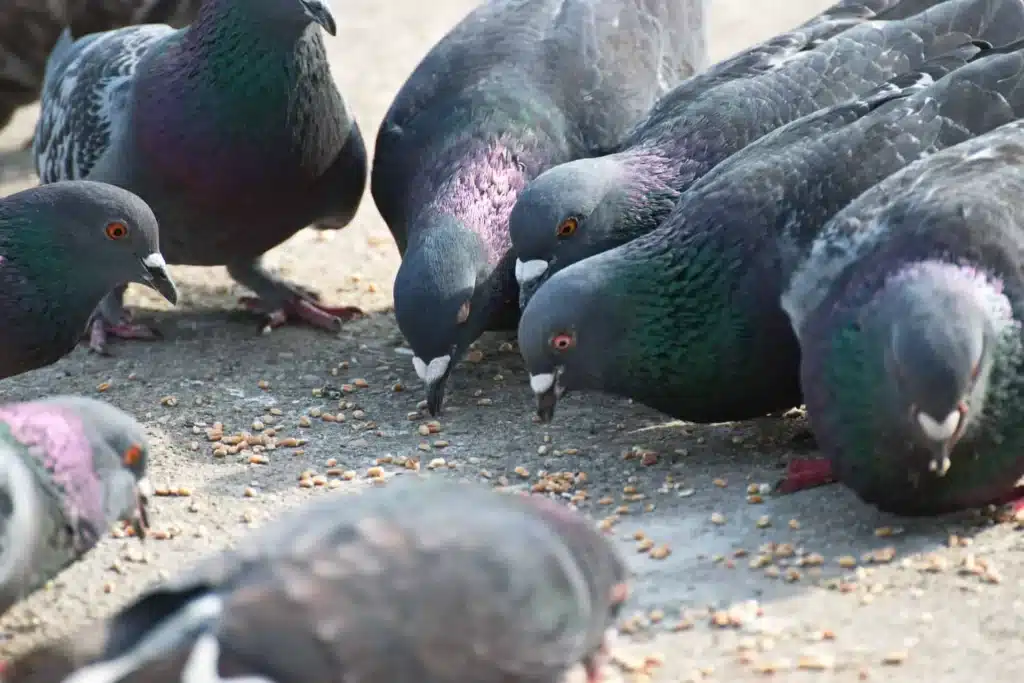
Conclusion
In pigeons, eat peanuts is not merely a matter of dietary curiosity but a fascinating insight into the adaptability and behavior of these ubiquitous avian companions. Throughout this exploration, we’ve delved into the intricate relationship between pigeons and peanuts, shedding light on the reasons behind their preference for this legume and the potential implications it carries. One of the key takeaways from our investigation is that pigeons, like many other bird species, are opportunistic omnivores. Their diet is far more versatile than commonly perceived, and while they primarily rely on grains and seeds, they are more than willing to incorporate peanuts into their culinary repertoire.
This adaptability is a testament to their ability to thrive in a wide range of environments, from bustling urban centers to tranquil countryside settings. Peanuts, as a food source for pigeons, offer several pigeon benefits advantages. They are a readily available and energy-rich resource, providing essential fats, proteins, and calories that can be especially beneficial during colder months when other food sources may be scarce. This dietary flexibility allows pigeons to maintain their populations and continue coexisting with us in various habitats.
However, it’s crucial to consider the potential downsides of feeding pigeons peanuts in urban settings. Excessive feeding of pigeons and other birds can lead to issues such as overpopulation, the spread of disease, and attracting unwanted pests. Therefore, if you choose to feed pigeons or other birds in public spaces, it’s to do so in moderation and with care, using appropriate feeders to minimize waste and avoid creating unsanitary conditions. Pigeons’ ability to adapt their diet to include peanuts underscores their remarkable resilience and survival strategies. While peanuts can be a valuable to their diet, responsible feeding practices are essential to maintain a balanced ecosystem and harmonious coexistence between pigeons and humans.

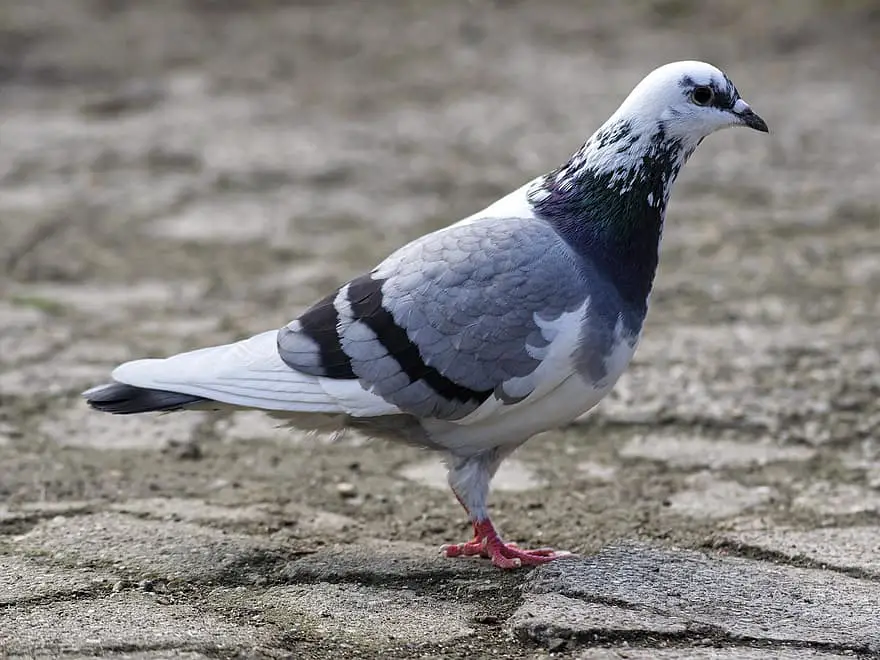
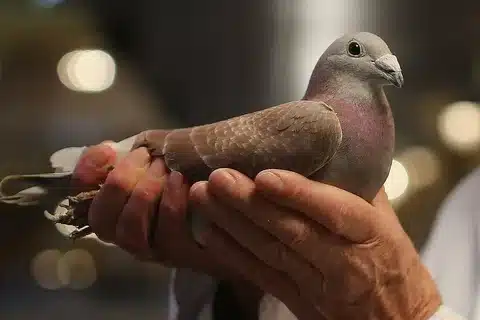
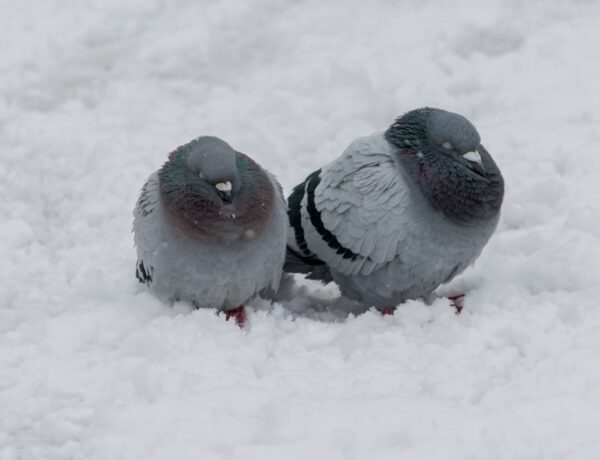
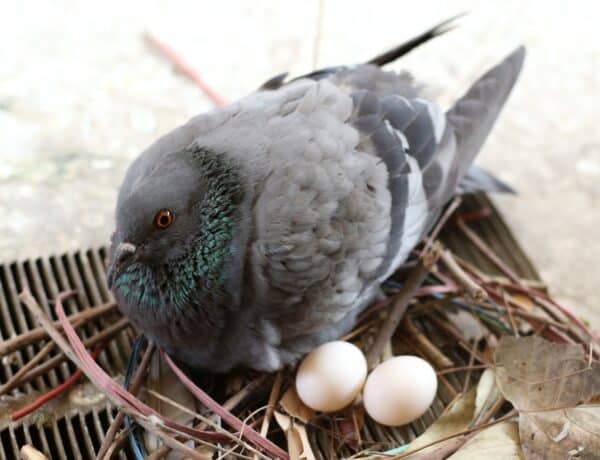
No Comments